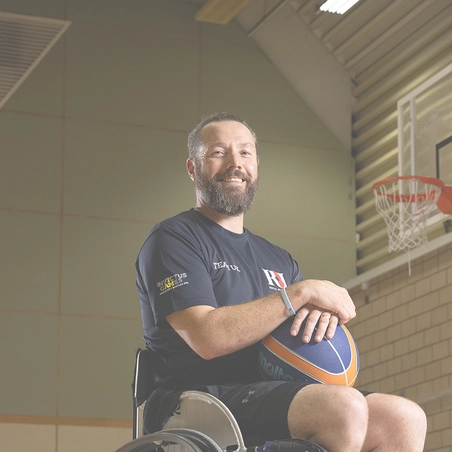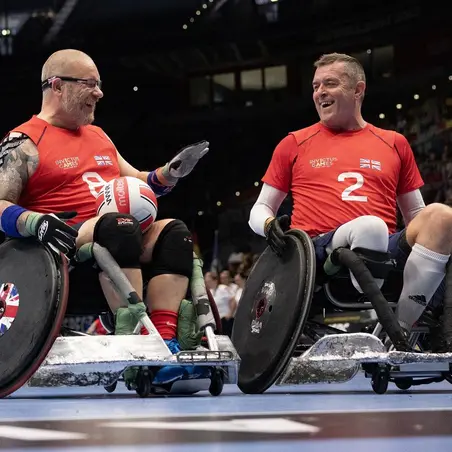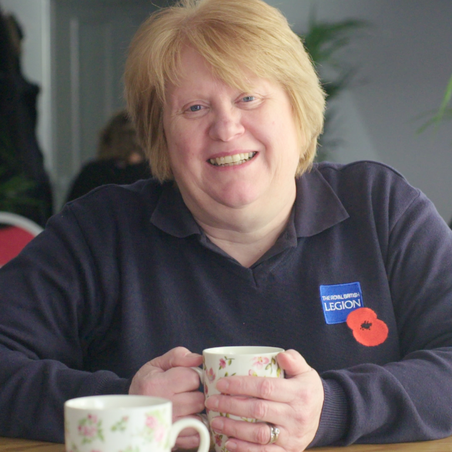On this page you will find information about:
- The process of a medical discharge.
- The help available, including financial support, benefits, compensation and grants to adapt your home.
- Practical guidance on how to find a home, your next job and how to register for civilian GPs and dentists after leaving the Armed Forces.
Many people who are medically discharged have different experiences with the system. The process often starts with the service personnel facing a medical condition or fitness issue affecting their ability to complete work tasks. Here are the rough steps to the process that may follow:
- Referral to a medical board who will complete a medical examination and review of the serving personnel's (SP's) medical grading.
- Sometimes, the SP will be medically downgraded so that they have time for treatment, recovery, and rehabilitation instead of being medical discharged straight away.
- After the review process, the board may recommend the individual continues to serve as permanently medically downgraded with limited duties, or the board may recommend they are medically discharged.
HARDFACTS assessment with your Chain of Command before discharge
Before leaving service, you should receive a HARDFACTS assessment with your chain of command.
Please note that it can take up to nine months for your application to be processed. If your application is urgent, you should explain why in your application so that it can be prioritised.
HARDFACTS is the acronym used to consider the areas in which wounded injured and sick (WIS) personnel may need support when leaving service.
The acronym stands for:
- Health
- Accommodation
- Relocation
- Drugs, Alcohol and Stress
- Finance and Benefits
- Attitude, Thinking, Behaviour and Welfare
- Children and Family
- Training, Education and Employment, and
- Supporting Agencies.
These aim to help you and your line manager assess your plan to leave service.
Transitioning out of the Armed Forces can be overwhelming and an uncertain time, especially when facing a medical discharge, but there is support and guidance out there.
Read our guidance on support for those transitioning into veteran life.
Housing Support
When you leave the Armed Forces, you will have to organise your own housing and the extra costs and admin that comes along with this, such paying for water, gas and electricity, and council tax bills. You may choose to rent privately or buy your own home.
For many, this is overwhelming, but there are information resources and support services available to help you find your new home in this time of transition.
Resources to help you find your own home: Civilian housing briefs
As part of the Defence Transition Services' (DTS) offering, it provides information resources about civilian housing options to help you understand your options and what might best suit you.
Registering as homeless before discharge
You do not have to be street homeless to be eligible for homelessness support from either the government or a number of organisations. If you will have a safe, reliable place to live after your medical discharge, you can register as homeless before you leave service. This will help you to receive the support you are eligible for as soon as possible.
Op FORTITUDE: Support pathway for ex-service personnel experiencing homelessness
Op FORTITUDE helps ex-service personnel who are at risk of becoming homeless by either helping them stay in their current accommodation or find new housing options.
Financial Support
Accessing financial help
Understandably, for many when they receive a medical discharge, they feel worried about the financial implications of changing careers. There is guidance and support available to you to help you navigate this time of change.
Read more of our guidance on accessing financial help on the RBL Knowledge Base website
War Pensions and Armed Forces Compensation
These two schemes are run by the MOD to provide financial support or compensation for those who have been injured because of or made worse by their service.
If you have already made an application for a War Pension or Armed Forces Compensation and disagree with the decision which has been made, our team may be able to help you make an appeal and even represent you at tribunal for free.
Find out more about War Pensions and Armed Forces Compensation on the RBL Knowledge Base website.
Personal Independence Payment (PIP) and Adult Disability Payment (ADP)
If you are living with a physical or mental health condition, or disability, you may be entitled to financial support.
If you live in Scotland or have a sufficient link to it, you might be eligible for ADP.
Aids and Adaptations: Making your home and day-to-day life more manageable
If you need help with your physical mobility, you might be eligible for support to fund aids and adaptations that make your home and day-to-day life more manageable and accessible.
Equipment and adaptations for living independently
If you need home adaptations to help you live independently, there are resources you can access to assess what equipment will best suit you and then fund the required changes.
Financial help for mobility, aids, adaptations and living with a disability
If you are living with a physical or mental health condition or disability, you may be entitled to financial support.
Recovery Services
Whether you are facing a medical downgrade or discharge to your physical or mental health, there are a number of recovery service opportunities available to you.
Battle Back and RBL Recovery Services
RBL's Recovery Services, including the Battle Back Centre, are available to both currently serving personnel and veterans alike. Together they can take part in programmes that helps them overcome challenges that they encounter after experiencing an injury or illness, all while taking part in activities and building social networks.
Bravo 22 Company
The Bravo 22 Company is an arts programme that gives Service people and veterans new skills while hoping to improve their confidence, self-awareness and motivation. As the programme supports an individual's recovery and the transition into civilian life, it is a great opportunity for those who are going through a medical discharge.
Read more information about Bravo 22 Company on the RBL Knowledge Base website.
Personnel Recovery Services: for currently serving personnel
The Defence Recovery Capability runs Personnel Recovery Centres (PRCs) to provide a space for support for wounded, injured and sick personnel to either recover or start their transition through medical discharge.
Mental health support
General mental health
Going through a medical discharge, and transitioning to civilian life, can take a toll on your mental health. If your mental health impacts you or a loved one's well-being, you might benefit from seeking support.
Social isolation
Many people struggle with feeling lonely even when they are around others. This can particularly be felt by people going through the time of transition that they face during their medical discharge.
Finding a job after leaving the Armed Forces
Finding a job and employment support
Finding new employment can be a very daunting process for anyone. The resources below can support your transition into a new civilian career.
Education and training opportunities
If you feel you need additional training or education to boost your skills and improve your chances of getting a job, there are various services available to help you.
Practical information
Registering with a civilian GP or dentist
It can take some time for your medical records to be transferred from the MOD.
Registering with a General Practitioner (GP) one to three months before your discharge, or as soon as possible, is recommended. This will allow the GP time to try to access your military records before the end of your discharge period, ready for your transition. When you register with your GP you should give them the medical summary form (FMED133A) that you were given when you were discharged.
Find out more about how to register with a civilian GP or dentist on the RBL website.
Veterans ID cards
As a service leaver, owning a Veterans ID Card will help you to verify your service and access support quickly and easily.
Read more about Veterans ID Cards and how to apply for one here on the RBL website.
Accessing your data from the MOD
As someone who is or has served in HM Armed Forces you can put in a request to access data about yourself which is held by the MOD.
Please note that it can take up to nine months for your application to be processed. If your application is urgent, you should explain why in your application so that it can be prioritised.
Learn more about what data is held by the MOD and how to put in a request on GOV.UK.
Support from the Royal British Legion
The Royal British Legion (RBL) is here to support the Armed Forces community through our grants, recovery services, and, support programmes. Our support starts after one day of service and continues through life, so we are here for you and your family even if you have medically discharged while going through military training.
Find out more about how the Royal British Legion can help you on the RBL Knowledge Base website.
To find out more about the support the RBL could offer you, contact us via
Telephone: 0808 802 8080
Telephone overseas: +44 (0)20 3376 8080
Calls are free from UK landlines and main mobile networks
Email: [email protected]



.jpg?sfvrsn=acb3c3e8_4&method=CropCropArguments&width=452&height=452&Signature=D5BAC960D530204FCEBE5677AF5088529441715C)

